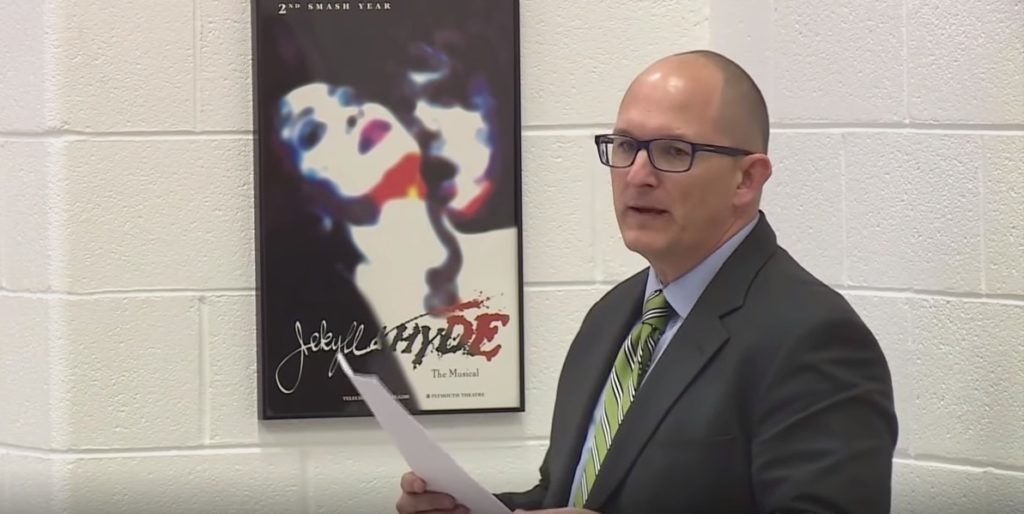Virginia Supreme Court to decide if teachers can be fired for not using students’ preferred pronouns
Can teachers be forced against their religious beliefs to use students’ preferred gender pronouns?
The Virginia Supreme Court is being asked that question in a case that is expected to help…

Can teachers be forced against their religious beliefs to use students’ preferred gender pronouns?
The Virginia Supreme Court is being asked that question in a case that is expected to help shape the argument nationwide.
In the case of Vlaming v. West Point School Board, a high school French teacher was fired for not using a student’s preferred pronouns, Fox News reports. Oral arguments were heard by a court last Friday.
In the fall of 2018, seven-year teacher Peter Vlaming was placed on leave after he told the school board he could not bring himself to refer to a biological female student using male pronouns.
Although Vlaming says he tried his best to accommodate the student by using her preferred name, and avoiding the use of pronouns altogether, his ultimate refusal to use male pronouns led to his termination by year’s end, according to his defense team with the Alliance Defending Freedom.
“Peter wasn’t fired for something he said; he was fired for something he couldn’t say,” trial attorney and ADF Senior Counsel Chris Schandevel said in a press release. “As a teacher, Peter was passionate about the subject he taught, he was well-liked by his students, and he did his best to accommodate their needs and requests. But Peter could not in good conscience speak messages that he doesn’t believe to be true. We hope the Virginia Supreme Court will agree that by firing him for those beliefs, the school board violated Peter’s rights under the Virginia Constitution and state law.”
After Friday’s oral arguments, Vlaming told Fox News he was not only fired from the West Point School district, but he was also “blacklisted,” making it impossible to get another job teaching in Virginia.
Vlaming said teachers from all over the country have contacted him to tell their stories of being put in similar circumstances by their school districts.
“Sometimes it costs something to speak the truth, to not lie,” he said of his advice to those teachers. “We’ve come to a point where your job may be in the balance, but if people don’t take a stand, then we’re basically going more and more toward a totalitarian system where things that have nothing to do with the curriculum are being required.”
The Virginia high court is being asked to decide “whether or not public schools will be allowed to fire teachers simply because they can’t express and personally endorse an ideological belief,” Caleb Dalton, legal counsel with Alliance Defending Freedom, told Fox News.
Dalton argued teachers should not be forced to choose between making statements that go against their beliefs and being fired.
“No government should be able to force an employee, on pain of firing, to lie and to violate their conscience,” he said. “We’re thankful that the Virginia Constitution protects his rights, and we’re hopeful the Virginia Supreme Court affirms those. [Vlaming] respects the right of the student to believe what the student believes and what the parents believe about gender ideology. All he’s asking for is not to be compelled to say that he believes the same thing.”
For his part, Vlaming says he didn’t share his own point of view in the classroom.
“I was there to teach French as a French teacher,” Vlaming said, adding he does not feel this issue should be a “stumbling block” in the classroom.
ADF says the Virginia Attorney General’s Office, a group of physicians, feminists, legal scholars and a variety of other organizations all filed briefs with the court in May, supporting Vlaming’s cause.
In its amicus brief, the Commonwealth of Virginia said Vlaming was being punished by the school board “because of his religious beliefs,” which goes against the Commonwealth’s constitution.
“The School Board’s decision to fire Vlaming for refusing to express a belief he does not hold, and that is contrary to his faith, transgresses Virginia’s longstanding constitutional protections,” the brief reads. “The Commonwealth urges this court to … hold that Virginia’s Constitution and Code forbid the government from forcing its citizens to express personal agreement with messages contrary to their deeply held religious beliefs.”
The physicians’ group that filed a brief in support of Vlaming argues that using a student’s preferred pronouns actually causes greater psychological and emotional stress in students experiencing gender dysphoria, and that Vlaming’s actions should be “celebrated” rather than punished.
“Affirming a child’s assertion of a discordant gender identity actually exacerbates the psychological and emotional distress that underlie the assertion,” the doctors’ brief reads. “In refusing to deny biological reality by acceding to his student’s demands, it was Mr. Vlaming who was acting in [the student’s] best interest. Rather than being terminated, Mr. Vlaming should be celebrated.”



